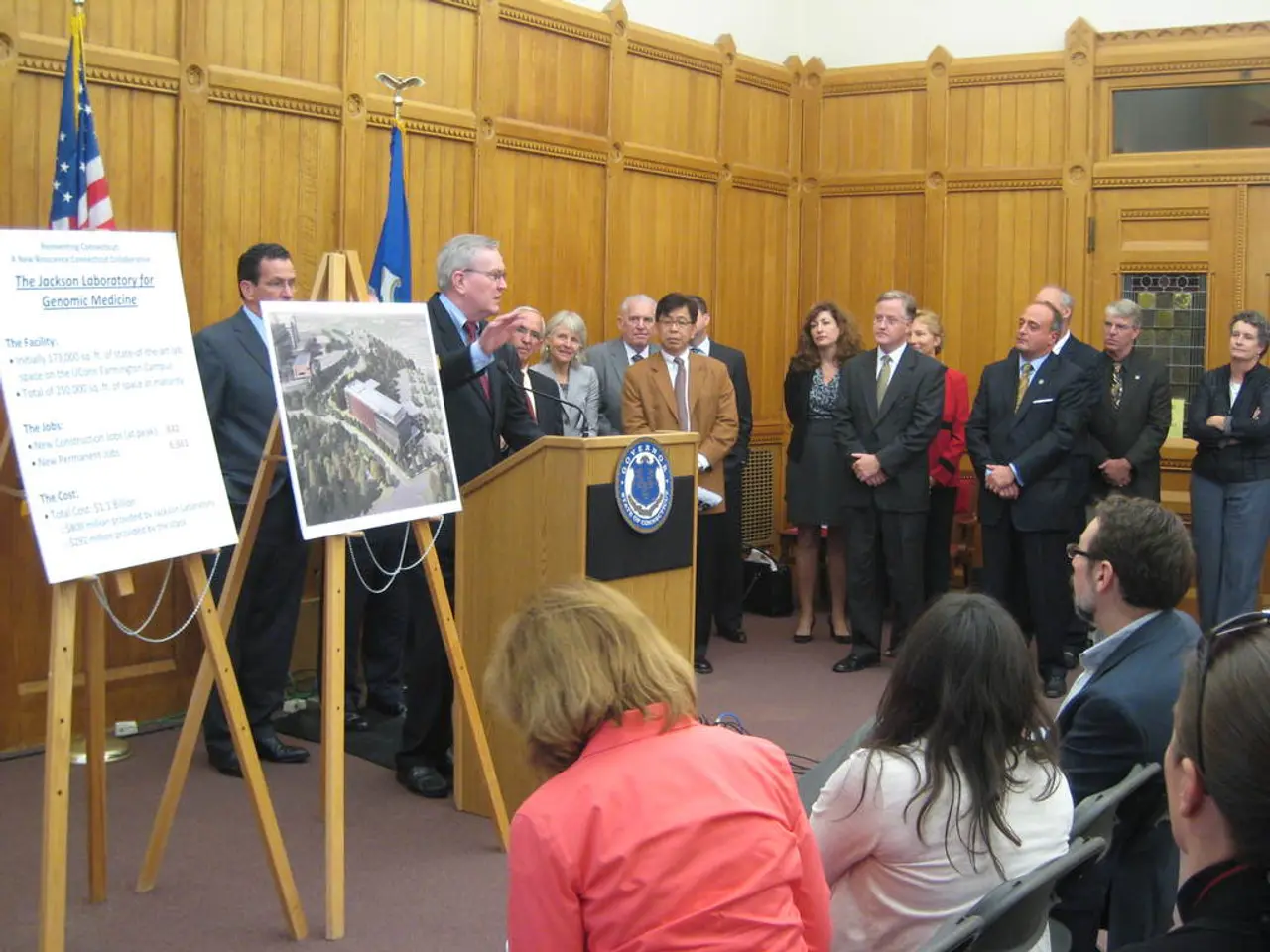Federal Government earmarks 4 billion rupees for reconstruction of infrastructure devastated by floods in Gilgit-Baltistan
Prime Minister Accelerates Disaster Preparedness in Gilgit Baltistan Amidst Heavy Rainfall Warning
In the face of a heavy rainfall alert issued by the Pakistan Meteorological Department (PMD), Prime Minister Shehbaz Sharif has intensified efforts to improve disaster preparedness in Gilgit Baltistan (GB).
The PMD's warning, effective from Monday until August 7, has prompted immediate action from the federal government. The focus is on installing and improving an advanced warning system to mitigate future disaster risks in GB, particularly against Glacial Lake Outburst Floods (GLOF).
The advanced warning system is currently in the process of being installed, with a target to complete it within the next two months from early August 2025. This system is expected to significantly enhance GB's ability to predict and respond to potential disasters.
Key measures to improve the system and disaster preparedness include:
- A joint collaboration between the National Disaster Management Authority (NDMA) and the Ministry of Climate Change to establish a dedicated forecasting and monitoring centre for GB.
- Emphasis on developing a comprehensive system for immediate rescue and assistance during emergencies, while incorporating climate-resilient infrastructure during restoration works.
- The federal government’s Rs4 billion relief package includes rebuilding infrastructure and establishing the advanced warning system to mitigate future disaster risks.
- Current alerts and warnings for flash floods are actively issued by NDMA and provincial disaster authorities during the ongoing monsoon season, reflecting the system's operational coordination and public advisories for vulnerable districts like Skardu and Hunza.
- The National Emergencies Operation Center (NEOC) under NDMA operates with a proactive disaster management strategy, continuously tracking environmental patterns to enable timely warnings and responses.
Recently, Prime Minister Shehbaz Sharif visited GB to meet flood victims and announce a Rs4 billion package for infrastructure restoration. He expressed dissatisfaction with the slow progress over the past seven years and last year, urging coordinated action among ministries and departments.
As the monsoon season continues, the government remains vigilant, ensuring real-time weather warnings and emergency response coordination to address immediate risks. The government is also integrating climate resilience in rebuilding efforts to better handle future disasters.
[1] Pakistan Today
[2] Dawn
[3] The News International
[4] NDMA Pakistan
- In light of the Prime Minister's focus on improving disaster preparedness in Gilgit Baltistan, environmental science and climate-change news might delve into the advanced warning system being installed; it is anticipated to significantly enhance the region's ability to predict and respond to potential disasters.
- General news outlets like Pakistan Today, Dawn, and The News International may report on the ongoing political maneuvers regarding the issue, such as the Rs4 billion relief package, strategic collaborations between ministries like NDMA and the Ministry of Climate Change, and the government's efforts to integrate climate resilience in rebuilding efforts.
- Science news, specifically environmental science, could explore the complications and strategies involved in developing a comprehensive system that incorporates climate-resilient infrastructure during emergency response and restoration works, in the context of Gilgit Baltistan's unique environmental challenges, particularly against Glacial Lake Outburst Floods (GLOF).








